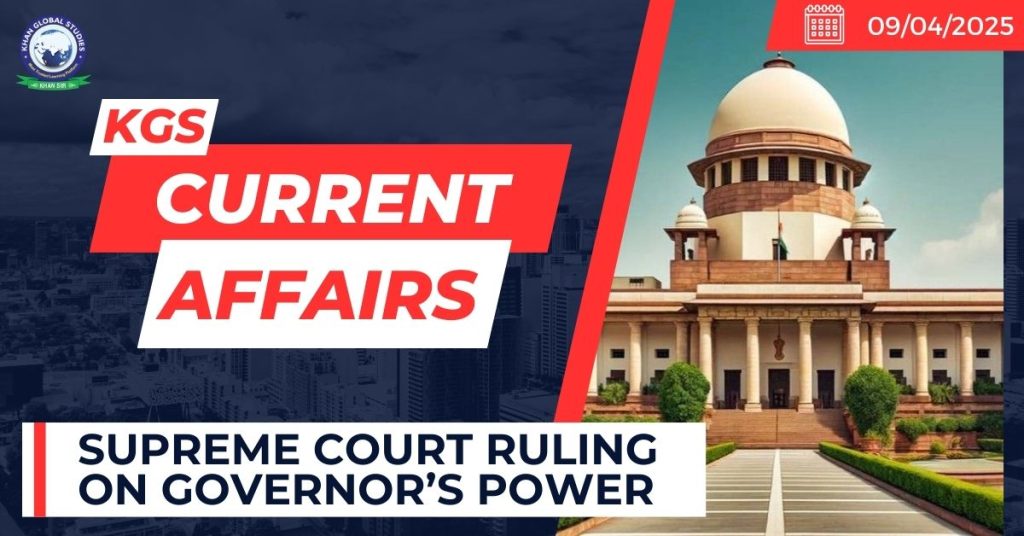Context:
A Supreme Court (SC) bench recently passed a judgment on the Governor’s powers with respect to State Bills.
More on the News
- The Tamil Nadu Governor had had withheld assent on 10 Bills passed by the state legislature.
- After the legislature re-enacted these Bills, the Governor chose to reserve them for the President’s consideration.
- A two-judge SC bench has now declared the TN Governor’s action as unconstitutional and further gave a ruling with respect to the Governor’s powers on State Bills.
Supreme Court’s Verdict
Interpretation of Article 200: The Article states that Governors have to take action on a Bill “as soon as possible”, which imposes an obligation to act swiftly and not indefinitely sit on the Bill.

Timeline for Decision:
- If the Governor withholds/reserves a Bill on CoM advice, it must be done within one month.
- If done contrary to advice, the Bill must be returned/reserved within three months.
- Once re-enacted by the legislature, assent must be granted within one month.
Governor’s Discretion: The Government of India Act, 1935 empowered the Governor to decide on Bills “in his discretion”, but this phrase was deliberately omitted in Article 200 with the aim to strip the Governor of any discretionary power.
Reserving Bills: The Governor can reserve a Bill for the President’s consideration only in the first instance. If the Bill is re-enacted by the State Assembly after the Governor had withheld his assent, it cannot be reserved for the President.
Veto Powers: The Constitution does not envision an “absolute veto” or a “pocket veto”. Unelected Governors cannot wield effective vetoes over democratically elected legislatures.
10 Pending Bills: Citing Article 142 of the Constitution which allows the Court to pass any orders necessary to do “complete justice”, the bench declared the 10 Bills as having received assent.
Related Supreme Court Judgments
- State of Punjab case (2023): Governors cannot “thwart the normal course of lawmaking by State Legislatures” and should instead return the Bill for reconsideration.
- Nabam Rebia case (2016): The Governor cannot withhold assent to a Bill indefinitely. If necessary, Bills must be return it to the Assembly with recommendation for amendments.
- Shamsher Singh case (1974): The Governor must act on the aid and advice of the CoM, except where the Constitution explicitly provides discretion.

